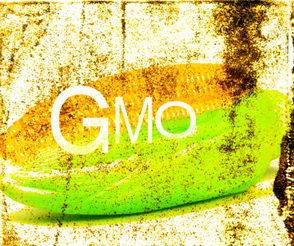GM foods won’t solve the food crisis
A 2008 World Bank report concluded that increased biofuel production (crops grown for fuel rather than food) is the major cause of the increase in food prices. GM giant Monsanto has been at the heart of the lobbying for biofuels -- while profiting enormously from the resulting food crisis and using it as a PR opportunity to promote GM foods!
GM crops do not increase yield potential
Despite the promises, GM has not increased the yield potential of any commercialized crops. In fact, studies show that the most widely grown GM crop, GM soy, has suffered reduced yields.
 GM crops increase pesticide use
GM crops increase pesticide use
U.S. government data shows that in the U.S., GM crops have produced an overall increase, not decrease, in pesticide use compared to conventional crops.
There are better ways to feed the world
A major UN/World Bank-sponsored report compiled by 400 scientists and endorsed by 58 countries concluded that GM crops have little to offer global agriculture and the challenges of poverty, hunger, and climate change, because better alternatives are available.
Other farm technologies are more successful
Integrated Pest Management and other innovative low-input or organic methods of controlling pests and boosting yields have proven highly effective, particularly in the developing world.
GM foods have not been shown to be safe to eat
Genetic modification is a crude and imprecise way of incorporating foreign genetic material into crops, with unpredictable consequences. The resulting GM foods have undergone little rigorous and no long-term safety testing, but animal feeding tests have shown worrying health effects.
Stealth GMOs in animal feed -- without consumers’ consent
Meat, eggs and dairy products from animals raised on the millions of tons of GM feed imported into Europe do not have to be labeled. Some studies show that if GM crops are fed to animals, GM material can appear in the resulting products, and that the animals’ health can be affected.
GM crops are a long-term economic disaster for farmers
A 2009 report showed that GM seed prices in America have increased dramatically, cutting average farm incomes for U.S. farmers growing GM crops.
GM and non-GM cannot co-exist
GM contamination of conventional and organic food is increasing. An unapproved GM rice that was grown for only one year in field trials was found to have extensively contaminated the U.S. rice supply and seed stocks. In Canada, the organic oilseed rape industry has been destroyed by contamination from GM rape. In Spain, a study found that GM maize “has caused a drastic reduction in organic cultivations of this grain and is making their coexistence practically impossible”.
You can’t trust GM companies
The big biotech firms pushing their GM foods have a terrible history of toxic contamination and public deception. GM is attractive to them because it gives them patents that allow monopoly control over the world’s food supply. They have taken to harassing and intimidating farmers for the “crime” of saving patented seed or “stealing” patented genes -- even if those genes got into the farmer’s fields through accidental contamination by wind or insects.
Sources: GM Watch February 2010
Read it all.
No comments:
Post a Comment